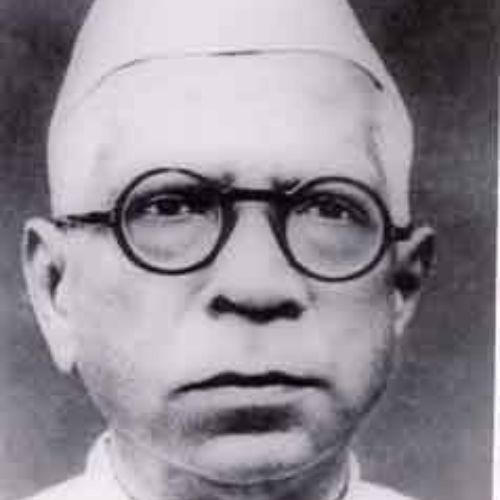Early life
Hari Vinayak Pataskar was born in Indapur, Poona on May 15, 1892. He studied at New English School, attended Fergusson College in Poona and ultimately attained his BA., L.L.B from Government Law College in Bombay. In 1920, he joined the Indian National Congress, and became an active participant in regional politics. He was elected to the Bombay Council in 1926.
Role in India’s Independence Movement
A qualified lawyer, he offered free legal services to political prisoners between 1925 to 1945. Pataskar was jailed in 1942 due to his involvement in the Quit India movement. He later became a member of the Bombay Legislative Assembly on two different occasions.
Contribution to Constitution Making
Pataskar was elected to the Constituent Assembly from Bombay on a Congress party ticket. He was a very active member of the Assembly and made interventions in the debates on preventive detention, due process, and anti-discrimination.
Later Contributions
In 1952, Pataskar was elected to the Lok Sabha from Jalgaon and was appointed the Law Minister of the country. His major achievement as Union Law Minister was the introduction of the Hindu Code Bill. Subsequently, he served as the Public Aviation Minister from 1955 to 1957.
Pataskar was appointed as the Governor of Madhya Pradesh, a position he held for seven years and seven months, making him the longest serving Governor of the state. During his tenure, he was awarded the Padma Vibhushan.
He passed away on 21st February, 1970.
- Considering the failure of the Assembly to accept the ‘due process of law’ clause in the right to life, he proposed a wide variety of amendments to Article 21 and 22 which had the effect of greater protections for personal liberty. He argued in favour of protections for detained persons, including the requirement that they be produced before a magistrate “within 24 hours” rather than “as soon as possible”.
- Pataskar contributed to discussions on due process and bringing uniformity in the law between the State and the Centre.

